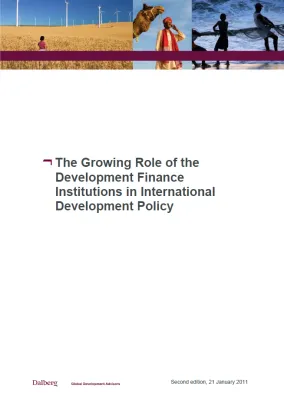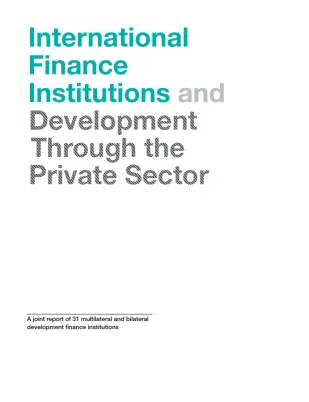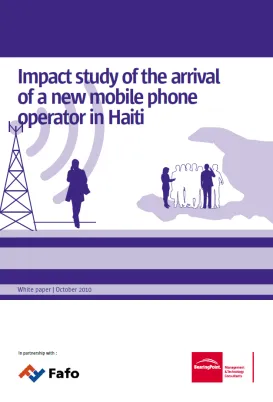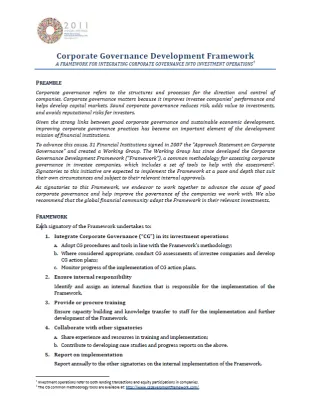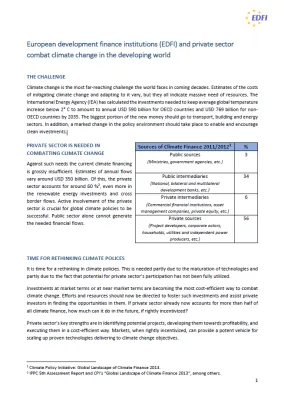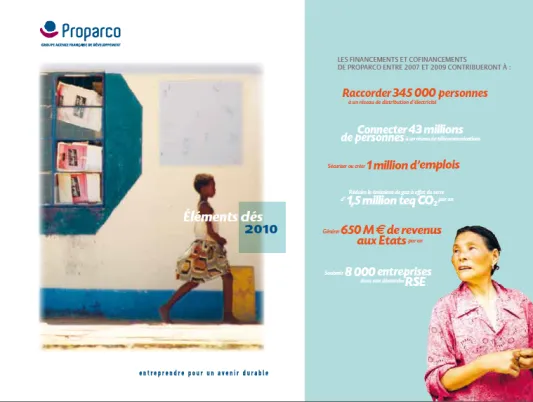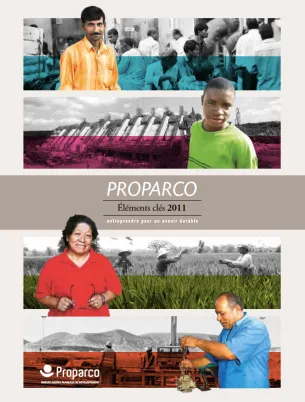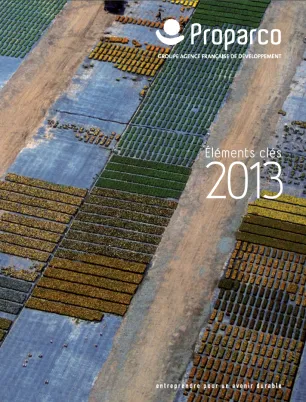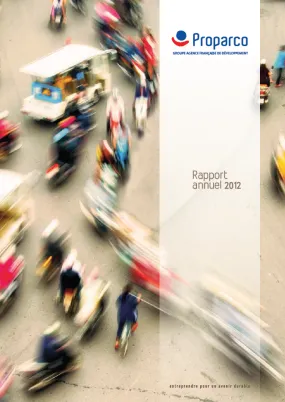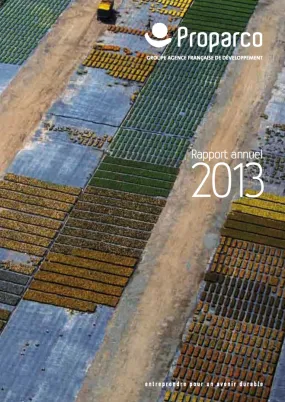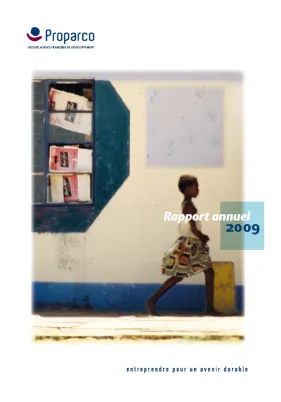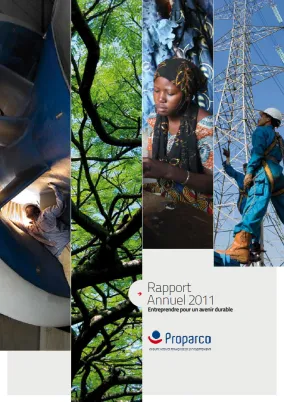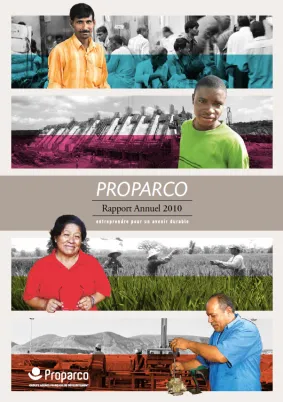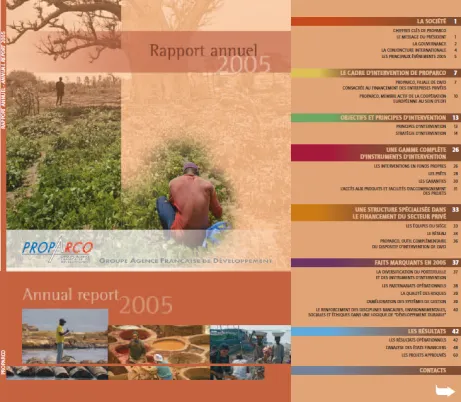Search results
The Growing Role of the Development Finance Institutions in International Development Policy
The private sector plays a crucial role in developing countries. It is a vital factor for growth and job creation and, by spurring economic development, provides the fiscal base which allows governmen...
Publication
Published on
International Finance Institutions and Development Through the Private Sector
The private sector is recognized as a critical stakeholder and partner in economic development, a provider of income, jobs, goods, and services to enhance people’s lives and help them escape poverty....
Publication
Published on
Impact study of the arrival of a new mobile phone operator in Haiti
Do telecoms really contribute to the economic development of developing countries? The question is not new. Even though 10 years ago, economists were thinking that only developed countries could benef...
Publication
Published on
Corporate Governance Development Framework
Corporate governance refers to the structures and processes for the direction and control of companies. Corporate governance matters because it improves investee companies’ performance and helps devel...
Publication
Published on
European Development Finance Institutions (EDFI) and private sector combat climate change in the developing wo...
Climate change is the most far-reaching challenge the world faces in coming decades. Estimates of the costs of mitigating climate change and adapting to it vary, but they all indicate massive need of...
Publication
Published on
EDFI - Towards Sustainable Development
EDFI is the Association of European Development Finance Institutions (“EDFIs”), a group of 15 publicly-backed institutions that provide financing and advice to private sector enterprises in emerging a...
Publication
Published on
Proparco at a glance
Proparco – a subsidiary of Agence Française de Développement (AFD) devoted to private sector funding – has been supporting sustainable economic, social and environmental development for 40 years.
Publication
Published on
Supporting our clients in implementing their projects and improving their practices
In developing and emerging countries, companies and financial institutions do not only need financing, but also to be assisted in implementing their projects and improving their practices, particularl...
Editorial page
Proparco Annual report 2012
In 2012, we consolidated our role as promoter of development and our status as responsible financier of the private sector in the South. To start with, we stepped up our presence in Sub-Saharan Africa...
Publication
Published on
Proparco Annual report 2014
2014 was an impactful year for PROPARCO, one in which we adopted a new strategy and increased our share capital by €200m. With a changing range of international fi nancing available to Southern Hemisp...
Publication
Published on
Proparco Annual Report 2010
For PROPARCO , 2010 has been an African year. With more than 420 million Euros in new commitments (almost 45% of annual financing), we have become sub-Saharan Africa’s leading bilateral partner. This...
Publication
Published on
Proparco Annual Report 2005
After the stabilisation of our activities in 2004, 2005 looks to be a year of strong growth with commitments in the order of €370 M and an annual growth of 70%. This trend is the result of a combinati...
Publication
Published on

